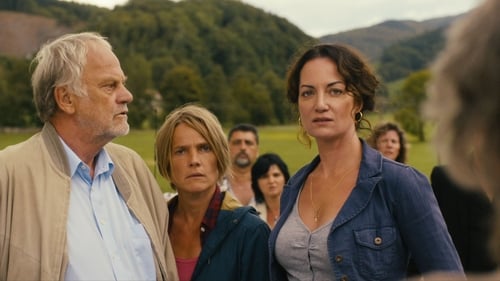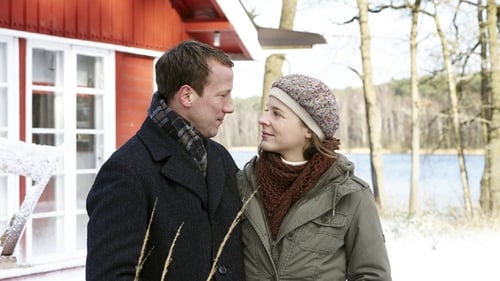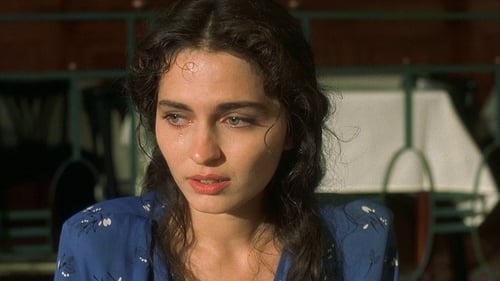Rolf Schübel
Nascimento : 1942-11-11, Stuttgart, Germany

Rolf Merz

Rolf Merz
Green meadows, blue sky in Swabia: Actually, the world of the two villages Oberrieslingen and Unterrieslingen should be in perfect order. But she is not. Why? Because the two hostile villages have had to share a church and a cemetery since the Middle Ages, which has caused squabbles and squalor to this day.

Writer
Three musically talented children look to the future, but their hopes crumble when Germany and Russia enter into war.

Writer

Director

Director

Director
The story of the first cloned human being - told in her own words: At the age of thirty the world-famous composer Iris Sellin learns that she has an incurable illness. She - a person who wanted to live for ever - does however not give in. In order to preserve her art and also herself, beyond death, for all posterity, she has herself cloned. Her daughter Siri, whom, in this way, she turns into her virtual twin, learns as a child that she is the world's first cloned human being. In fact a blueprint: a blueprint of her mother. From that moment on nothing is as it was before...

Director

Director

Screenplay
Budapest in the thirties. The restaurant owner Laszlo hires the pianist András to play in his restaurant. Both men fall in love with the beautiful waitress Ilona who inspires András to his only composition. His song of Gloomy Sunday is, at first, loved and then feared, for its melancholic melody triggers off a chain of suicides. The fragile balance of the erotic ménage à trois is sent off kilter when the German Hans goes and falls in love with Ilona as well.

Director
Budapest in the thirties. The restaurant owner Laszlo hires the pianist András to play in his restaurant. Both men fall in love with the beautiful waitress Ilona who inspires András to his only composition. His song of Gloomy Sunday is, at first, loved and then feared, for its melancholic melody triggers off a chain of suicides. The fragile balance of the erotic ménage à trois is sent off kilter when the German Hans goes and falls in love with Ilona as well.

Director

Director
November 1990. Weekend. Three young turk men accompanied by two German women were taking the subway. They were in an exuberant mood and wanted to visit a discotheque. When a group of drunken neo-nazi youngsters entered the train an open confrontation arose. It ended bloody. The film follows the protagonists up to the event (and some time beyond) which took place in Berlin, Germany.

Director

Director
January / February 1993 marked the 50th anniversary of the German surrender at Stalingrad. On the occasion of this anniversary, a television documentary was produced in German-Russian cooperation, which, following a classic documentary pattern, allows 6 contemporary witnesses, former opponents of the war, to recount their personal experiences in front of the camera.

Writer
Based on the autobiographical notes by Leonhard Lentz the film tells the story of a man who was diagnosed with throat cancer. Besides the progress of the desease this film also focuses on the emotions and insights of the protagonist while being in therapy.

Director
Based on the autobiographical notes by Leonhard Lentz the film tells the story of a man who was diagnosed with throat cancer. Besides the progress of the desease this film also focuses on the emotions and insights of the protagonist while being in therapy.

Screenplay
Between 1962 and 1966, sex murderer Jurgen Bartsch cruelly tortured and killed four children in an old air raid bunker in Germany. This documentary examines the personality of the killer who died in 1976 during voluntary castration surgery at the age of 30. Vilified by the press for his heinous crime, Bartsch also became a case study for famous found criminal psychologists like Alice Miller (who maintains that no one abuses without being abused as a child, and murderers tend to have their own childhood abuse denied by the adults around them). Bartsch never met his birth parents, he was raised in a clinic and later adopted by a cold, unaffectionate couple. By the age of 15, he tortured and killed his first child victim. This informative, fact-filled documentary provides enough details for viewers to come away with a broader understanding of the nature of the criminally insane and society's role in their formation.

Director
Between 1962 and 1966, sex murderer Jurgen Bartsch cruelly tortured and killed four children in an old air raid bunker in Germany. This documentary examines the personality of the killer who died in 1976 during voluntary castration surgery at the age of 30. Vilified by the press for his heinous crime, Bartsch also became a case study for famous found criminal psychologists like Alice Miller (who maintains that no one abuses without being abused as a child, and murderers tend to have their own childhood abuse denied by the adults around them). Bartsch never met his birth parents, he was raised in a clinic and later adopted by a cold, unaffectionate couple. By the age of 15, he tortured and killed his first child victim. This informative, fact-filled documentary provides enough details for viewers to come away with a broader understanding of the nature of the criminally insane and society's role in their formation.

Writer
Documentary about the closure of a chemical plant in Krefeld and its effects on the employees.

Director
Documentary about the closure of a chemical plant in Krefeld and its effects on the employees.

Script
This film from 1968, which was later awarded the Adolf Grimme Prize, caused fierce reactions throughout Germany at the time. People had expected a promotionally effective Heimatfilm and now suddenly felt defamed.

Director
This film from 1968, which was later awarded the Adolf Grimme Prize, caused fierce reactions throughout Germany at the time. People had expected a promotionally effective Heimatfilm and now suddenly felt defamed.













